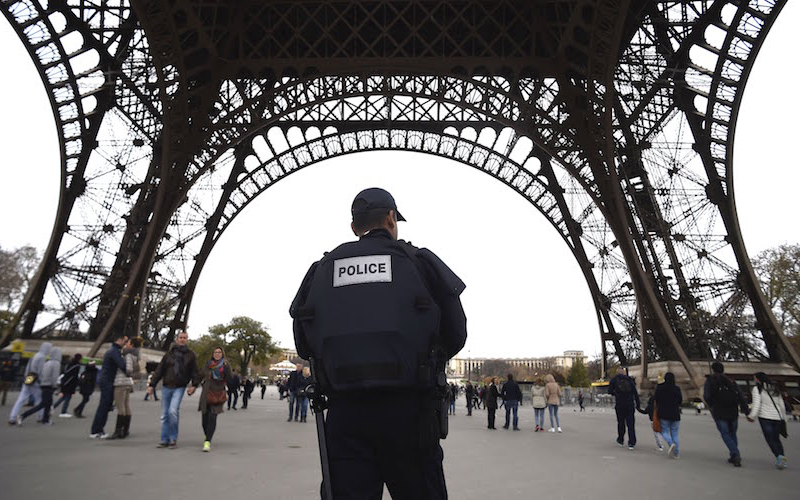
As Goes Manila and Nairobi, So Goes Paris
When I last visited Paris, exactly two years ago, Charlie Hebdo, Bataclan, the Brussels and Istanbul airport attacks, and this year’s other terrorist attacks had of course not yet occurred. While France (and Europe more generally) have regrettably become no strangers to such attacks (there have been scores of attacks in France alone during the post-War period, and more than 20 since 2003), something has clearly changed since 2014. Apart from the evolving and heightened security protocol in many public places, there is palpable, underlying sense of fear. You can tell by the looks on people’s faces in the Paris metro, for example, and by how numb Parisians have become to the barrage of intrusions by security personnel, inspecting their bags in so many public places.
The sad truth is, the distinction one could make — until only very recently — between Paris and any number of other cities around the world vis-à-vis security protocols, has slowly disappeared. Yes, there has for some time been a protocol that went above and beyond what most countries in the West experience as a routine, but today, security forces armed with automatic weapons patrol all the major tourist destinations in Paris, from the Champs-Elysees to the Eiffel Tower to the Louvre. At the Eiffel Tower, tall metal fences now surround its perimeter, and all visitors must first pass through a security cordon before they may enter the grounds. At the Louvre, bags are now checked prior to being able to enter the line for the “formal” security check, before tickets may even be purchased. And, bags are checked before entering train stations and shopping centers.
In short, Paris has become a city under siege, and it is hard to imagine that, once this type of security protocol has been established, it will be relaxed any time soon.
So, in a sense, the terrorists have already won. They have succeeded in changing the way people live throughout the world, they have already succeeded in forcing governments and businesses to spend vast sums to implement heightened security measures, and they have succeeded in creating a climate of fear that is pervasive. In reality, they need not even continue to attack Western targets. The damage has been done. Perhaps they will not stop until what is now happening in Paris happens in the U.S., Canada, the UK and those other nations where the type of security protocol that is more common in Nairobi and Manila becomes the norm throughout the world. No doubt, that is a part of their longer-term objective.
What is left unsaid is how ineffective many of the protocols that have been implemented will actually prove to be. Airport-style security procedures did not stop the Brussels and Istanbul attacks from occurring. Apart from the armed forces roaming the streets with the automatic weapons, most of the security personnel performing the bag and person checks are not even armed. My hotel had an x-ray scanner for people, but not bags (for which a casual visual inspection sufficed), but neither of the security personnel were armed. The train station across the street had security personnel, but no x-ray scanner for people or bags. This implies that it is simply a question of time until the next attack occurs, and it begs the question, why even bother implementing a protocol if it is so inadequate? Don’t people realize that doing so achieves much more from a ‘feel good’ perspective than providing effective security?
What a sad commentary on the state of our world, that one of its greatest cities has been reduced to a series of blockades on free movement, where people behave like robots, automatically queuing and opening their bags for inspection, casting a suspicious eye on their neighbors and fellow travelers, and wondering if they could become a statistic at any time. It does take away from the joy of just being in a magical city like Paris, but more importantly, if Paris can be reduced to this type of ‘normality,’ we must assume that it is simply a question of time until London, New York, and even Tokyo succumb to the same thing.
Taken to its next logical conclusion – that eventually, cities such as Paris will have adopted extensive security measures for as long as the Nairobis and Manilas of the world have – perhaps there is no limit to how disruptive terrorists (who are the vast minority) will be able to exert power and influence over the rest of the world’s population. To be realistic, we must assume that the tyranny of this minority may only have just begun.
